Why this student chose Valencia
We don’t often have students doing these “expat” interviews. But Olivia has a unique perspective: not only is she a student, she has a degree in social anthropology and Spanish. She also worked as an English Language Assistant while in Valencia, so she has experience interacting with young Spanish people.
So I thought it would be interesting to have her tell us her thoughts on her Spanish experience.

Name: Olivia Bastin
Age: 24 years old
Country of Origin: Scotland
Time spent in Spain: 8 months
Hi Olivia! You have a degree in social anthropology combined with a degree in Spanish. So I’m assuming that coming to Spain was a goal of yours for a long time now. Can you please tell me all about that?
I lived in Valencia for 8 months as part of my university degree from October 2023 until May 2024. I have an MA Honours degree in Social Anthropology and Spanish from the University of St Andrews. Practicing my Spanish and gaining a deeper anthropological understanding of Spanish culture were things that really interested me, coming to live in Spain was a goal of mine since high school.
In Scotland if you are studying a modern language you are guaranteed a year abroad in order to improve your linguistic accuracy in your target language. For this reason, I’d planned on being an English Language Assistant with the Spanish Ministry of Education for 8 months somewhere in mainland Spain. That’s what led me to Spain.
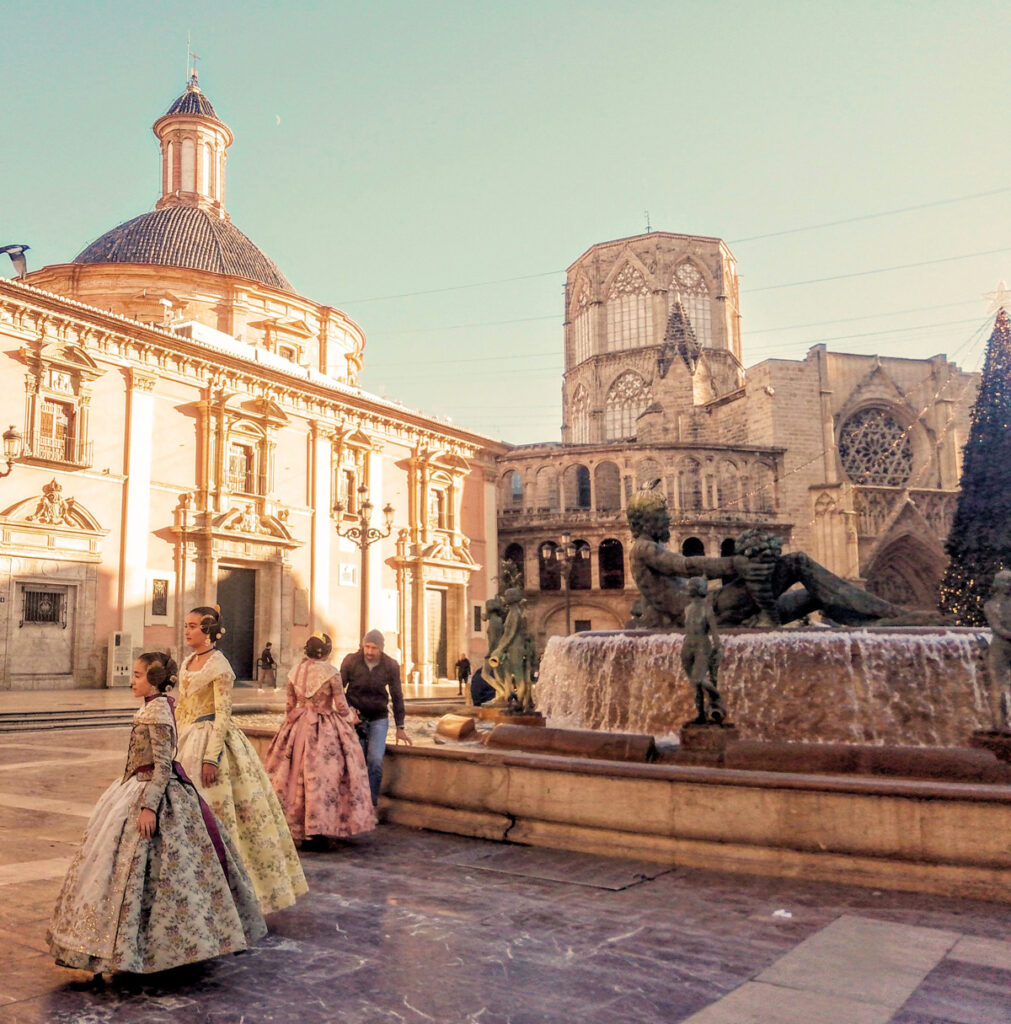

A few useful Resources
Buying Private health insurance in Spain. We recommend Innoinsure, they make it easy and offer different policies through various providers. And you don’t need a Spanish bank account – you can pay with foreign credit cards. More info here.
Spartan FX. Buying a house or car in Spain and need to transfer and exchange a large sum of money? More here.
Wise. For everyday transfers and exchanges of money from your home country. Nobody should be using banks anymore. More here.
Why Valencia Olivia?
When applying for my Integrated Year Abroad, I had the choice between three Spanish regions. I’d already been to Barcelona, Cordoba, Jaen, Santander, Segovia and Toledo so I picked the region of Valencia as my first choice. I also thought it would be great to pick up Valencian and add another language to my repertoire. Thirdly, I’m really passionate about street art and I knew that Valencia had a thriving urban art scene. David de Limón has Ninja art dotted all over the city. There are other famous street artists like Julietta X and Disneylexia can be found in the El Carmen district as well as Na Jordanna.
As I could have been placed anywhere within the Valencian region but I got Valencia – which was perfect for me.
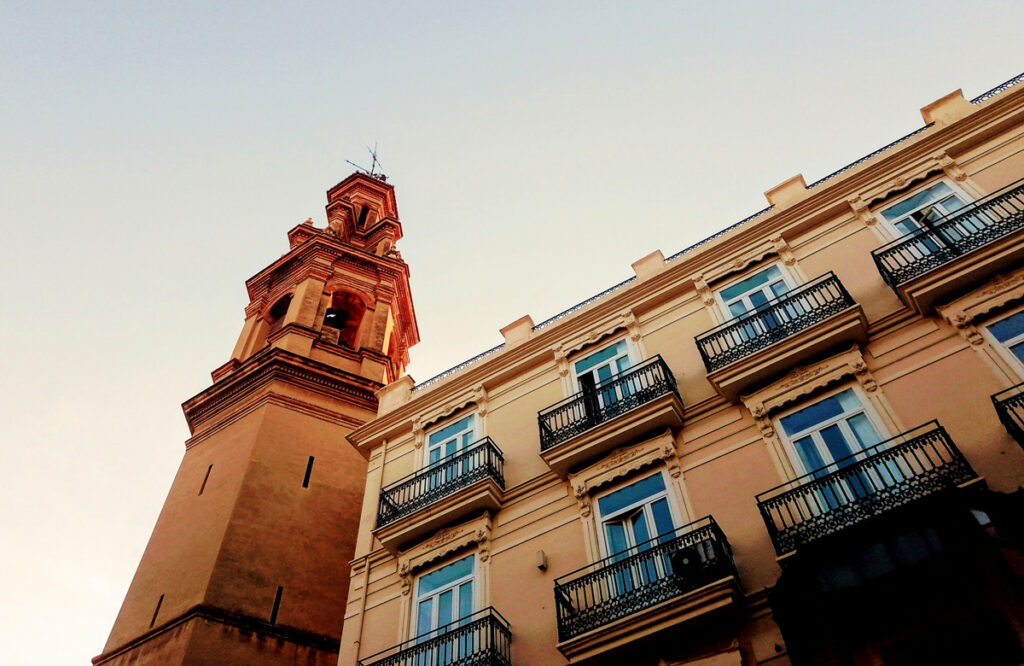
Valencia seems to be getting more and more popular among foreigners. What, to you, makes it special? What do you like about Valencia?
The city has so much to offer and I can see why Expats would like it.
Firstly, if you are under a certain age public transport is free. Valencia has a very efficient metro, bus and tram network.
Secondly, in comparison to Madrid and Barcelona, the cost of living is much cheaper.
Thirdly, Valencia is a very vibrant city. It has something for everyone. If you like art then the IVAM makes for a great day out. The wealth of museums and galleries is incredible and many of them are free on Sundays and public holidays.
Valencia has an engaging architectural scene with a variety of different styles on display such as post-modern, brutalist, art-nouveau and art-deco as well as many historic sights such as the Serrano Tower, Colon market and the City of Arts and Sciences. I’m particularly fond of the Northern Train station and the Jewish House which is located behind the bull ring (I love the Indian and Egyptian design features along with the bright colour scheme).
On top of it all, Valencia has become very popular with Erasmus students. There are many educational opportunities for students and – being Spain’s third largest city – it is very stimulating. A lot of students enjoy going to the beach or attending one of the many language exchanges that happen throughout the city. I found this to be a great way of meeting people and making new friends.
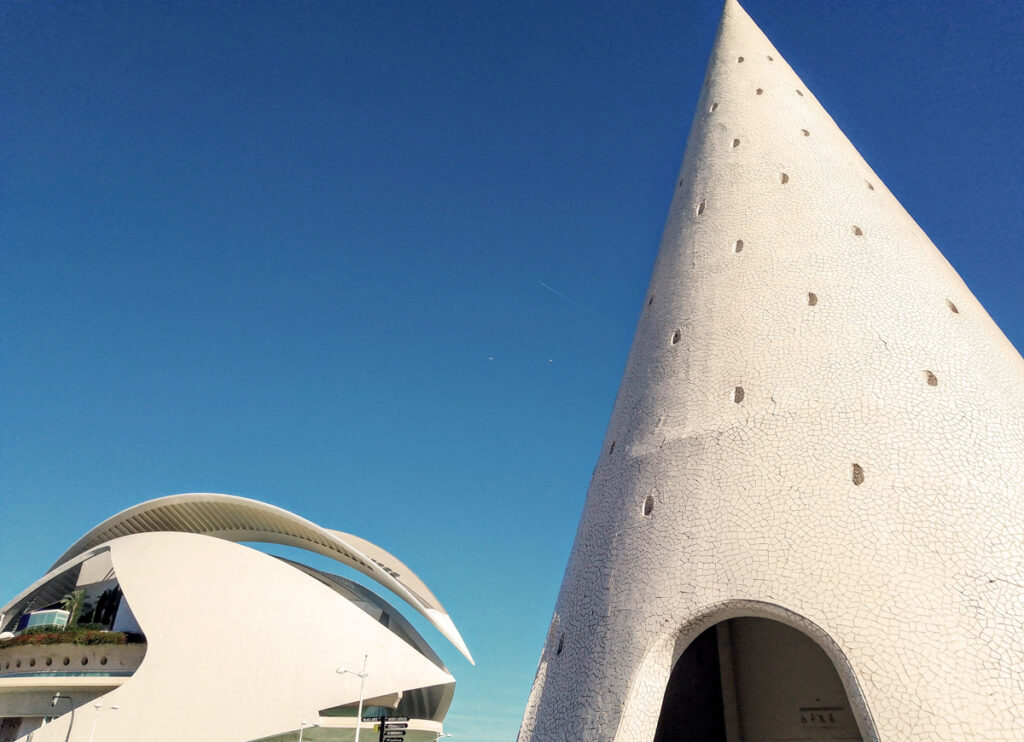
How about negatives? Anything you don’t like about Valencia?
In all honesty, I found the lack of a queueing system when getting any form of public transport to be frustrating. In Edinburgh, we have an orderly system. In Valencia, people pushed themselves aggressively on the bus with no respect for who arrived first.
I noticed people rarely apologized. I would often have people bash into me and they would never say “perdon” or desculpe”.
Thirdly, the concept of customer service is quite different to what it is in Scotland. As much as I understand a different approach, I found the lack of warmth and attention frustrating and disappointing (especially when going to a restaurant).
I guess you could say I found a rudeness that I don’t generally encounter in the UK.
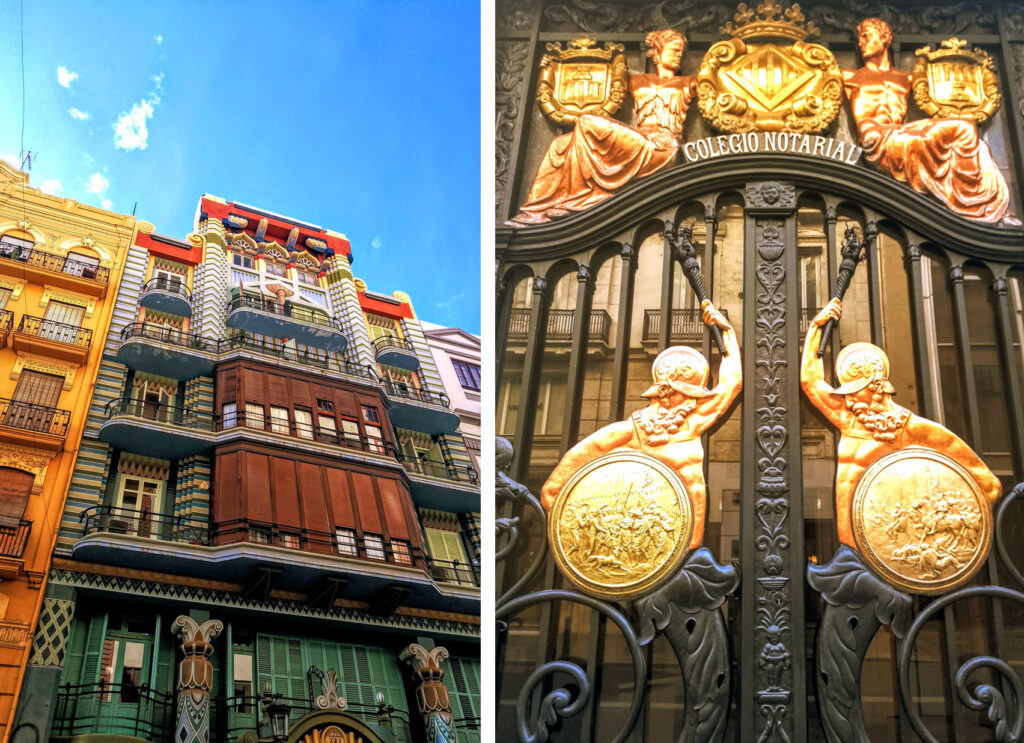
Please tell us about how your education in social anthropology has shaped your experience here. What, for example, do you love about Spanish culture? What could other cultures learn from it?
I truly and utterly love social anthropology. Studying it has given me a cartographic map in a sense, giving me guidance around understanding how a culture works.
I enjoy how the Spanish make time for family and friends. It’s a big part of everyday life. I believe other cultures could learn from this. Catching up with friends and family is woven into the sociological fabric that makes up the “Spanish experience”. We don’t have this tradition as engrained in the UK. In Spain, it felt as if it were more of a given as opposed to something to arrange or plan.
I love the colour and design of Spanish art: the pottery, tiles and crafts that you find at markets. The iconic black bull is incredibly striking to me. It’s vibrant and reflective of a rich culture. I really appreciate that.
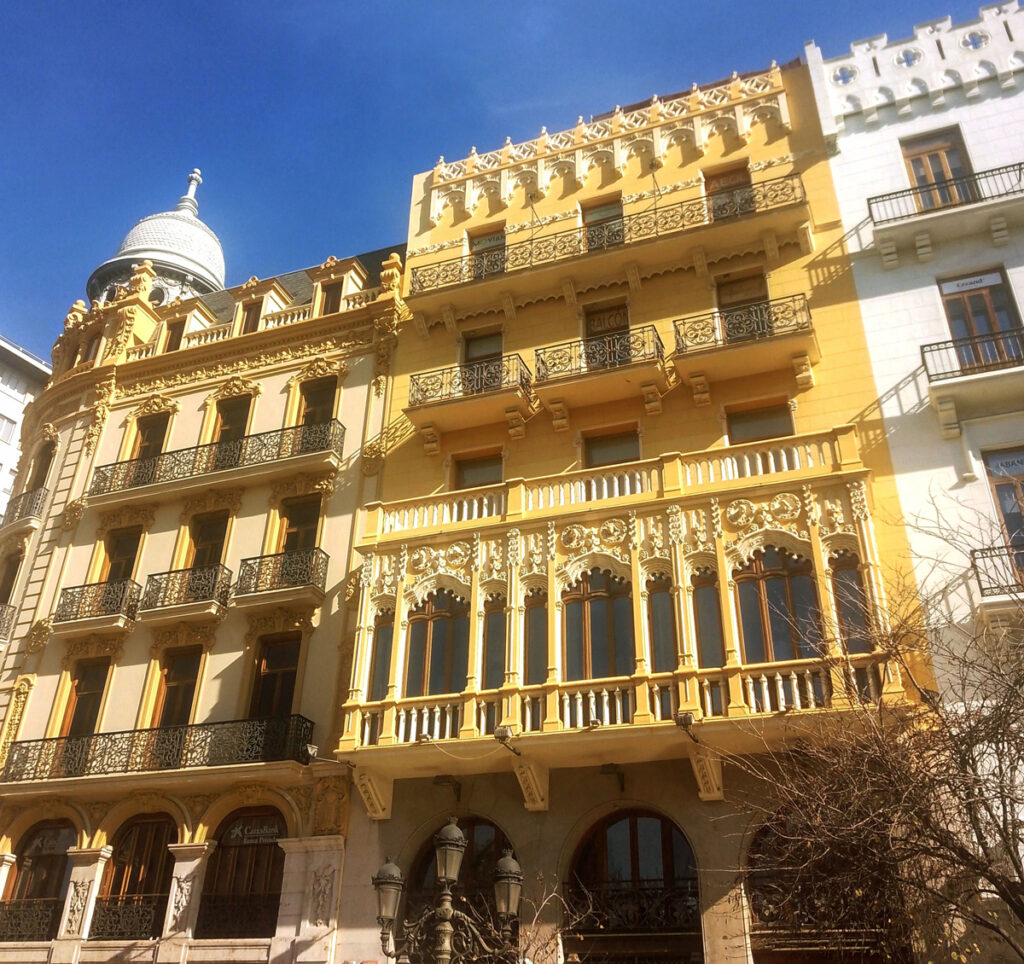
You’re also an English teacher so I’m assuming that you deal with Spanish students. How is your average student in Spain different than your average student in the UK? And how does culture account for differences?
I believe educational systems function differently all over the world. I really enjoyed being an English Language Assistant but I was surprised by several differences.
Activism: my students were very politically active much like their counterparts in the United Kingdom. But in the majority of British schools students protest outside of their educational hours. In Spain many skip class to protest during school hours. That was different. But I was impressed by how politically engaged they were and how passionately they wanted their voices to be heard.
Formality: I noticed in how the students would address the teacher using his or her first name. In Scotland students were much more formal when it came to speaking to one’s teachers. We would always say Mr or Miss etc. I found these different concepts of politeness and formality varied more than what I’d previously expected.
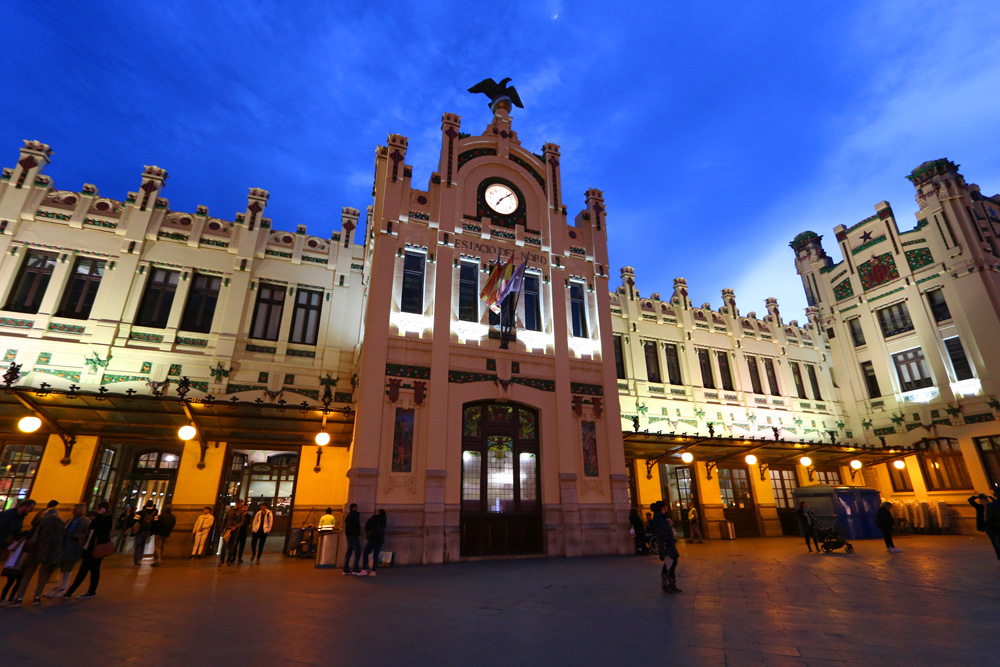
What do you think are the most common errors foreigners make in not understanding Spanish culture?
I think most of the expatriates I talked to wanted to gain a deeper, less touristic, understanding of the culture. But without having had anthropological training it is harder to evaluate how the culture lives and breathes. It appears as if it is a relatively easy culture to navigate on the surface sociologically. But I believe chiseling beneath the layers of the banal and standard require having in depth conversations with local Valencians to truly understand what Valencia means to them and how they would define their own cultural beliefs, background and perspectives. Although it may sound obvious, having these conversations can help to anthropologically orientate oneself and work out which parts of the culture one is more interested in. Even if Spanish culture is less radically different than say other cultures, it requires study through observing sociological structures set in place and having these conversations with the locals to understand their version of the human condition.
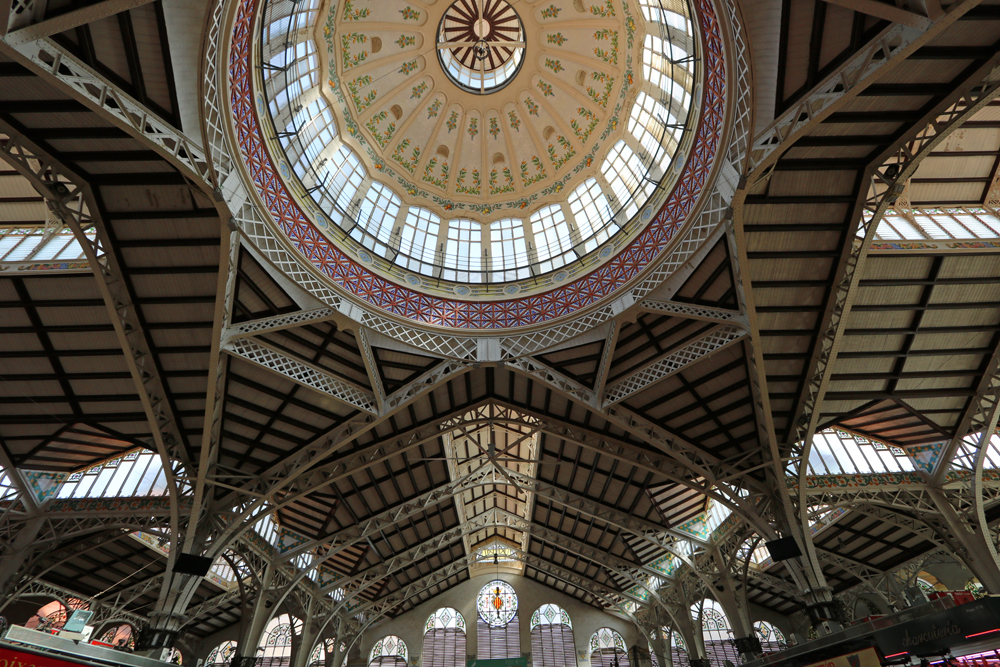
Despite having training in social anthropology, is there anything about Spanish culture that irks you? It’s one thing to be culturally aware, it’s another to deal with the everyday challenges of living in Spain. Do you ever struggle with reconciling your left and right brain?
I believe that the concept of personal space is very different in Spain than it is in comparison to the United Kingdom. In Scotland we tend to give each other a lot of physical space in our everyday lives such as getting on the bus or even where we’re sitting in a coffee shop in relation to where the other chairs are placed. In Valencia I found that people were much physically closer to me. On a sociological level it is interesting seeing how something as insignificant as this changes culture to culture but I did find that it meant anthropologically that that people were less worried about bumping into each other…meaning the concept of politeness was much fuzzier and indistinct. I think it’s important to be aware of this difference and not take it too personally.
Interestingly, I found that the sweets section in the majority of Spanish supermarkets like Consum and Mercadona to be much smaller compared to its British counterparts. As much as I felt this was healthier I did miss the variety of sweets and chocolate you can get your hands on in the United Kingdom.
Aanother aspect of the culture that surprised me was how many chairs were lined up outside the bars and cafes lining the road. In Scotland, people tend to sit indoors due to the colder weather. At times, I found the Spanish way of doing things a little irksome. For example, if I had groceries, I always felt bad about swinging them along the road so close to people sitting outside eating or drinking. I found that at times it felt that you just simply had less physical space to move around in compared to the United Kingdom.

I’m hearing that it can be difficult finding lodging in Valencia. What was your experience? Any tips for people looking for accommodation?
I found accommodation relatively easily through the company Spot A Home. I was in Extramurs near to the botanical gardens and Quart tower. This is a nice area of Valencia as there are numerous cafés and even some street art to find! My favourite coffee shop is Mayan Coffees as I loved the interior design which reflected the Guatemalan nature of this place. They also have great banana bread! Another of my preferred spots is a Colombian restaurant called El Paisa which, yet again, has an incredible visually striking interior design that features a painting of a red and yellow door along with window panes. I loved how exuberant and stimulating the colours are! I also enjoyed going to the botanical gardens as the space was so peaceful and provided a tranquil environment away from the hustle and bustle of the city.
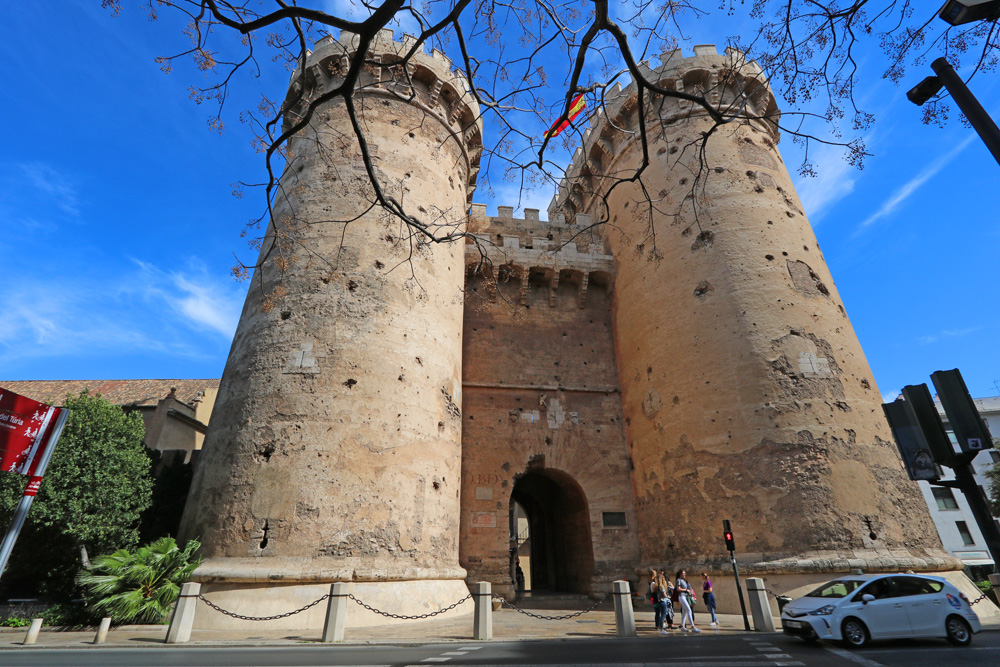
Apart from your work, how do you do to keep busy Olivia? What’s your daily life like in Valencia?
That’s an excellent question! I frequently went to Cine Lys beside the bullring to improve my Spanish. I saw a range of movies such as The Palace, Anyone But You, Disco Ibiza Loco Mia, One Life, Eight Moroccan Names, The Ballad of Songbirds and Snakes and One Love. On Wednesday, the price of tickets were usually lower. Additionally, writing is my main hobby so I actually wrote an article for Valencia Life and Valencia 24/7- The English Speaking Connection. One was in praise of all the great places one can see by taking the 95 bus around the city and the other was about Valencia local David de Limóns’ iconic ninjas that can be found throughout Valencia.
Another hobby of mine is photography so I took a lot of photos around the city. That included a lot of galleries and museums which I loved. One of my favorites was the CCCC in El Carmen which has a diverse range of free art and photography exhibitions.
I also joined a book group where we read Juan Ramon Jimenz’s collection Platero y Yo. It was a great way to learn more about Spanish literature. At university, I studied several prominent Spanish literary works and this book group gave me the opportunity to delve into some less well known Andalusian prose.
Finally I learnt some of the Valencian language through a weekly class on Thursday evenings. I enjoyed learning about the socio-political intricacies of this dialect and being able to read street signs and informative placards in museums like the Almonia Archaeological Museum.
There are so many ways to stay busy in Valencia, it’s a very cultural city.
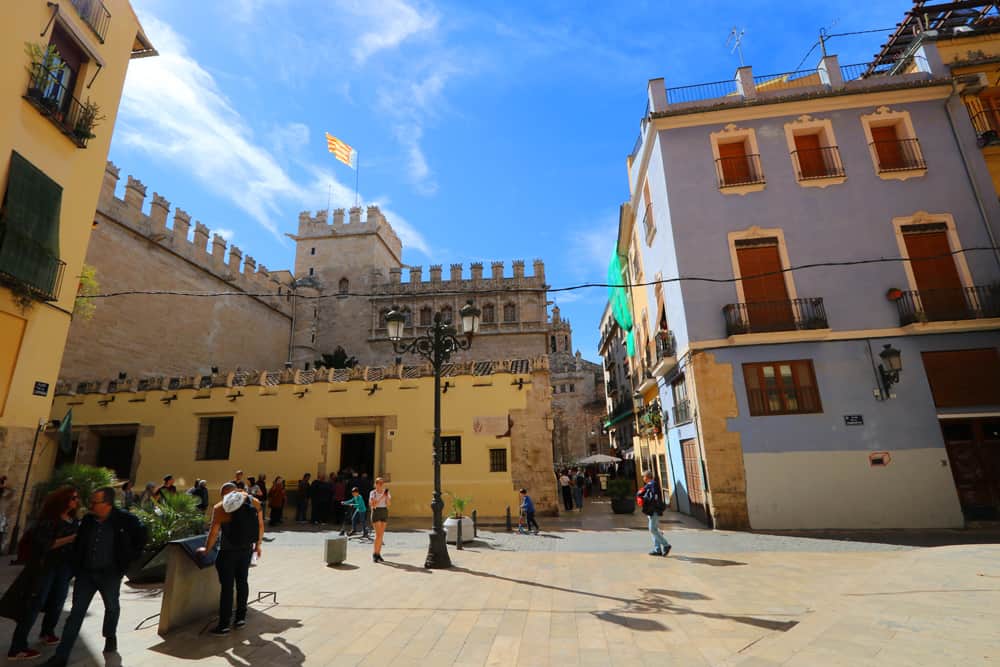
What do you think the future holds Olivia? Do you think you’ll still be in Valencia and/or Spain in 10 years from now?
I am currently in Edinburgh working at a science museum for the summer. In September, I will be teaching English in Reunion Island in the Indian Ocean for 8 months. I hope to continue teaching English in different parts of the world.
I really enjoyed living in Valencia for those 8 months and would be open to teaching English in Spain again. I think I would like to be an English Language Assistant in the south of Spain in a city like Seville or Cadiz as I’ve only travelled around the north of Andalusia. I am also interested in Spain’s two autonomous regions in North Africa and wouldn’t be opposed to living in Ceuta or Melilla. I also fancy teaching English in the Canary Islands.
Finally, I’m really keen on the idea of teaching English in Colombia. It would allow me to continue perfecting my Spanish and being part of the Spanish speaking world.
Thank you for doing this interview Olivia!
Related: What makes Valencia a great place to live in Spain?

Related: Where to live – Alicante or Valencia?
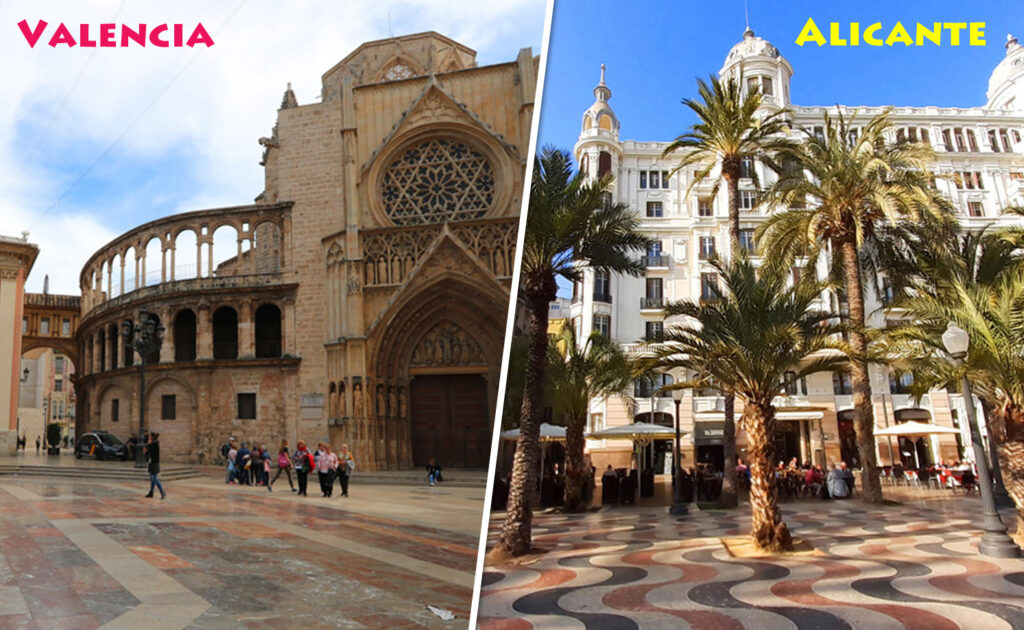

Thanks for this very informative survey. I just visited Valencia for two days scouting neighborhoods. Obviously I only scratched the surface and this article points the way to more places and experiences. My wife and I are moving to Valencia as soon as our visa application is (hopefully) approved. We look forward to confirming Olivia’s observations.
Good luck Jim! Valencia was at the top of our list when doing our scouting trip in 2020. Then Covid hit and changed everything…